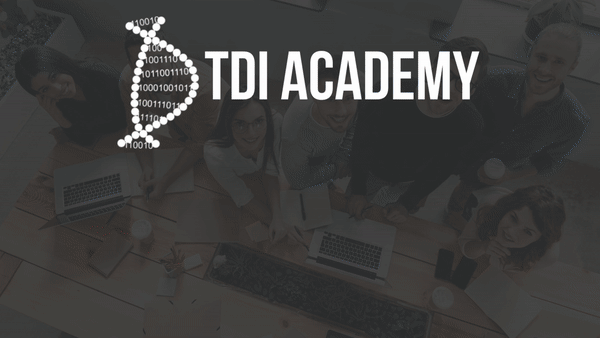Africa Round-Up
Introduction
Our continent has the youngest population globally and very low insurance penetration. In many areas, we lack a lot of traditional infrastructure and currently most of SSA (sub-Saharan Africa), isn’t developing as fast as some predicted for a variety of political and economic reasons, however therein lies an opportunity.
Insurance in Africa has huge potential, but faces some pretty steep and well-known challenges too. Our industry can play a significant role in poverty alleviation and growth – if we do it right. Personally, I think we have a responsibility to do all we can – and that means doing what we have been doing very differently!
Insurance is a significant sector with API in the region of USD60 billion (SA: ~USD42 billion) off extremely low penetration rates in the 0.5% – 2% range (again with the exception of South Africa with around 14% – 15%). Our industry has the capacity to do a huge amount of good, provided we find a way to make it happen. Easier said than done, but there are some encouraging signs.
For this first Africa Round Up piece, I thought I’d take a more macro view of insurance in our region as a scene-set, with my thoughts on some of the potential it offers and challenges it faces.
Population
Although young, the majority of the population of Africa lives in poverty, struggling to survive let alone worry about things like financial inclusion or planning. If there’s enough food on the table – it’s a good day.
Effective education is also patchy and many people reach adulthood without the benefit of the higher end skills to enable them to forge a better life for themselves and their families. This is more pronounced in the rural areas, but finding a job in the populous cities is certainly not easy, leaving large urban and rural groups in the grip of poverty.
These high poverty levels are hardly conducive to greater sales of insurance products.
Infrastructure
This is a double-edged sword. Population density and the largely rural distribution of the population have meant that formal infrastructure hasn’t developed to the degree it has in more populous regions like Europe. The topography and vegetation present very real issues to its development not to mention funding, which effectively means it’s not going to happen any time soon.
This presents challenges for the populations. Access to health and other basic services become a very real challenge.
In the urban areas overcrowding and overloading of the infrastructure also create challenges which are not easy to overcome, especially as their provision becomes more reactive than proactive. The rural to urban migration in search of a better living standard just exacerbates the issues.
Financial Inclusion
With poor education and earnings potential, most people live a subsistence existence, outside of the high-end financial services. Many barter obviating the need for cash in some circumstances. The lack of formal infrastructure further hampers efforts to include more people.
Financial education is extremely difficult under these conditions and a lack of understanding of the financial system and services can breed mistrust.
Cultural norms and values
I am no expert in this department, but having chatted to a number of people across our continent and knowing what I do of the South African setting, what works or is even acceptable in one country or region may be total taboo in an adjacent one.
The significant cultural and religious differences across the region make a blanket approach highly unlikely to succeed. Success will depend on being able to easily deliver to these disparate groups without the need for vastly different product delivery and management.
Current ‘traditional’ products
Most markets cater to the top end of the socio-economic spectrum and their needs are pretty similar to those of similar standing around the world. The current rack product sets largely meet their needs. Unfortunately they don’t travel well!
Once you get out of that relatively small group of relatively high net worth clients, the products start to lose relevance, value and hence sales traction and persistency. Basically they become self-limiting by their design.
There are products packaged for the mass market, such as credit, funeral benefits and some health plans, but in reality these are the same base risk products as the upper end of the market, more or less, just packaged differently with some helpful add-ons. Nothing wrong with that, but they simply don’t meet the real needs of a great many potential customers.
So before I get depressed, we should look at some of the opportunities.
Technology
When I was starting out my career in the late ‘80’s, I soon found myself involved in InsurTech. Clearly it wasn’t called that then, but against the technological backdrop of that time automated workflow and rules-based automated underwriting engines were arguably more radical for that era than the new technologies being deployed today.
The lack of infrastructure lends a helping hand here as it has, of necessity, allowed us to leapfrog old technology and embrace the new. This is particularly true of telecoms, which have become the backbone of the modern economy (and everything else) and allows many rural folk access to products and services never before possible. They can now connect with a much wider and richer world and access the tools to engage with banking and financial services that were practically impossible previously. For them, the cellphone/mobile phone is not a status symbol it is a connection to the wider world. Phone handsets may be much more basic than the current top of the range, but they usually do provide access to at least USSD or basic browser-based functionality. Data charges are significantly lower across the continent that in South Africa and some platforms do sponsor or subsidise data usage when using certain social-media platforms.
So is mobile the silver bullet? Clearly not, but it is the enabler. And that’s where I think as an industry we have started to go wrong. We’ve tended to think of technology as the solution, not the enabler.
What needs to change then?
In a word – Everything.
The mobile connected world has shifted client expectations and demands to a place we simply can’t reach with our current products and processes. Clients no longer accept things the way they were and will just leave you behind if you don’t deliver to their expectaitons. Does that mean all traditional products and services are dead? No. But it does mean they have to look and operate very differently.
To use a non-tech illustration. How many of you would consider a completely rebuilt and refurbished (to factory spec of course) 20 year old car model when replacing your current car?
‘But it’s tried and tested technology! It’s proven and works just fine! It’s cheaper to produce, purchase and maintain because the set up costs are fully amortised by now! All those new functions are just gimmicks and just add things that are likely to fail and be of little use other than novelty value!’
I thought not!
So why do we expect our customers to settle for old technology that is past its sell-by date? They may have had no choice in the past, but today that is no longer true. Clients have more choice than ever before and are far more mobile and will exercise their freedom far more than previous generations.
At The Digital Insurer we have segmented InsurTech into 2 broad groupings:
- New digital business models
- Value chain innovations
The insurer, digitally fit for the future, will need to be a blend of a number of these segments if they are to survive and flourish.
I am certain, as I was about automating the life underwriting process, that InsurTech and ‘digital’ are the future. What I’m less certain about is the timeframe we have to work with. I’ll leave that to others debate. What I do know is that the clock is ticking!
Areas we need to address
To make meaningful progress we will need to focus on some pretty fundamental building blocks of our industry. It isn’t possible to do them justice in a single article, so we will tackle them in future editions in order to delve into them more deeply and adequately discuss the implications.
Here are my ‘Top 5’ issues required to effect fundamental and sustainable change for the industry in Africa:
- Truly understanding our (potential) clients’ actual needs …. And we won’t do it from air-conditioned offices
- Products …. Tweaks are out – new risk coverages are in
- Service delivery …. We need an African solution to digital delivery (not smart phone dependent)
- Legacy backend …. We need to disconnect from the constraints these bond us with now, before it’s too late.
- Entrenching ourselves as a daily value-adding relationship …. We need to find ways to be a relevant part of clients’ daily lives – and it won’t simply be a claims or policy management app / website!
Each of these is a significant chunk to tackle and we’ll do our best over the coming editions. We’d welcome any input you may have!
Future editions
We have a huge amount to cover but we’ll endeavour to touch as many key points as we can in each edition of Africa Round Up and strike a balance, in covering the component parts that make up the insurance industry, as best we can.
We would welcome your feedback and suggestions. This is your publication, so please let us know if you have any burning topics you’d like to see addressed that we haven’t mentioned. We can’t promise, but we’ll do our best to meet everyone’s needs, but will certainly focus on the topics of most importance to the majority of our readership.
Lastly, Africa is a huge place and to ensure we do justice to the many markets please consider becoming one of our New Correspondents and being our eyes and ears in your home market. If you’d like to support us by helping sponsor Africa Round Up or in another way, please do make contact with us.
Till next time.
Andrew.





























































Comments